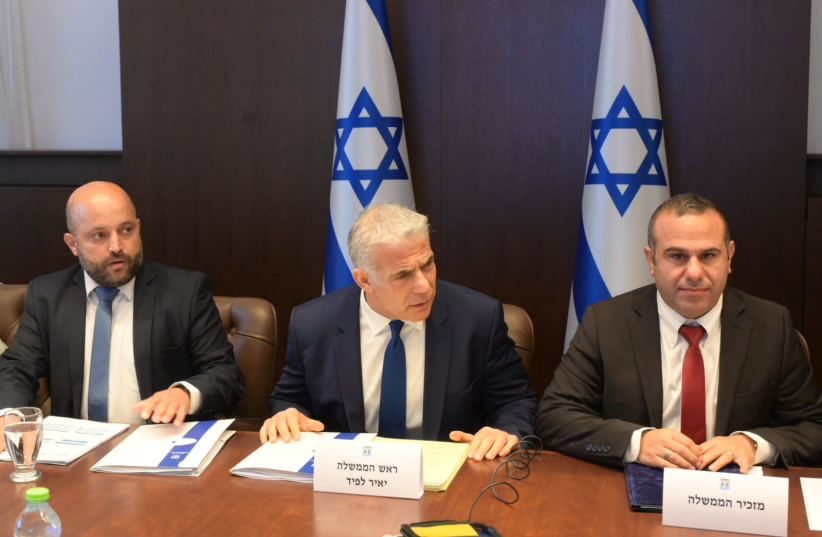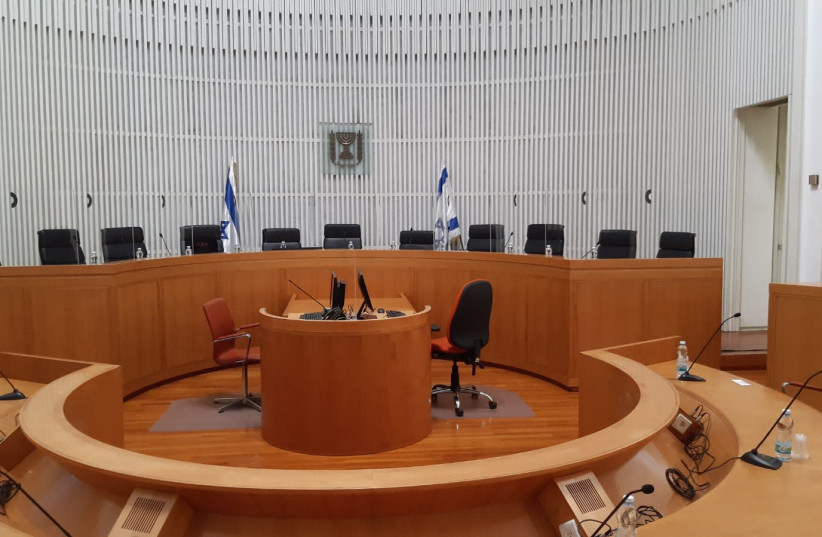The High Court of Justice on Thursday heard multiple petitions seeking to block the government’s proposed maritime deal with Lebanon.
It was unclear when High Court President Esther Hayut, Justice Uzi Vogelman and Justice Noam Sohlberg would vote on the issue, though a decision was expected soon with election day set for November 1.
In one of the most dramatic points of the hearing, Religious Zionist Party MK Itamar Ben Gvir alleged that negotiations between Israel and Lebanon had blown up and were frozen, restarting only because of election season.
Pressed on the issue by Hayut about whether he had proof of this, Ben Gvir demurred, but then lashed out at IDF intelligence and the Foreign Ministry.
Anticipating that the justices would be hearing from IDF Intelligence Chief Aharon Haliva in a closed classified session, he urged Hayut to interrogate him over whether negotiations only restarted around the same time as election season kicked into high gear.
If true, this could support Ben Gvir’s claim that the election was a key motivation for nailing down the deal now, as opposed to just national security.
On the flip side, many commentators have said that the timing was as much connected to ongoing crises in Lebanon itself.
Ben Gvir did face some notable push back from Sohlberg about whether the court was the right party to intervene, despite both of them being considered part of the country’s right-wing on legal issues.
Sohlberg said that Ben Gvir could have tried to force a vote in the Knesset by seeking a large number of signatures.
Kohelet lawyer Ariel Ehrlich continued to push the argument that the deal requires a referendum based on the idea that Israel will be ceding some of its territorial waters and there is a law requiring a referendum for ceding sovereign territory.
However, the justices indicated to Ehrlich that the fact that the territory itself was disputed, that the IDF has rarely acted there and that claims over the territory were mainly made as a bargaining chip would shoot down his argument.
Lavi’s Yitzhak Baum said he basically agreed with the government’s lawyers that the Knesset should hold a vote on the issue – only that the government lawyers saw this vote as preferable, whereas he considered it obligatory.
Yet, the justices intervened with counterexamples to the idea that a Knesset vote was obligatory, such as a deal made with Cyprus without Knesset approval.
Baum suggested Cyprus was different because it had not included a war, as with Lebanon.
Both at the hearing and on Wednesday, the Knesset Legal Adviser told the High Court that while it would be better for the government to seek full Knesset approval of the impending Lebanon maritime deal, it is not necessarily legally required.
Lebanon deal strikes some as strategic for election season
To date, the government’s strategy has been to put the deal before the Knesset for debate for two weeks, but then to give a final vote of approval in late October, days before the November 1 election, by a simple cabinet vote.
Both the Knesset lawyers and the Attorney-General lawyers said that deals with historic diplomatic consequences have usually been voted on by the Knesset.
Further, they said that the need to get Knesset approval was even greater now, when the government itself is only transitional and carries with it less legitimacy for major moves.
Some decisions are even prohibited during election season to avoid the perception of abusing government power to impact election results.


